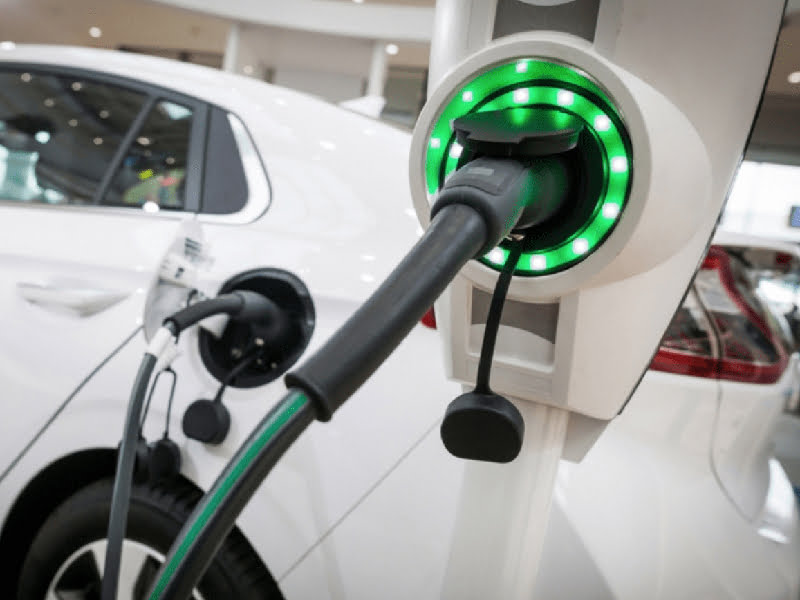Victoria’s controversial electric vehicle tax will be challenged in the High Court by two drivers who argue that the state lacks the constitutional power to levy a road user charge.
The case was filed on Thursday on behalf of the drivers by Equity Generation Lawyers and comes after the Victorian government announced in November a road tax for users of electric vehicles from July this year, which the state expects to raise $30 million per year.

The High Court challenge comes after the South Australian government delayed introducing a similar tax until 2027 due to opposition in its state parliament and pushback from industry, and as NSW Transport Minister Andrew Constance recently said it was a “disincentive” to introduce such a tax during a transition period, labelling Victoria’s move “crazy and ridiculous”.
Instead, both NSW and South Australia are offering subsidies as incentives to get road users to switch to electric vehicles before any such tax is levied. Like South Australia, NSW is still planning to introduce a tax, but not until 2027.
In Victoria, the tax is calculated on a cents per kilometre basis, with a tax of 2.5c/km for full electric vehicles and 2c/km for plug-in hybrid vehicles. Owners of electric vehicles self-report the kilometres travelled and verify this with a photograph of their odometer.
This compares to the fuel excise for fuel-power vehicles, which is currently charged at 42.3 cents per litre for petrol and diesel, and 13.8 cents per litre for LPG. This is said to fund the development and maintenance of Australian roads.
The Victorian Government says it uses revenue collected from the electric vehicle tax to “invest in the accelerated adoption of zero and low emission vehicles, including new electric-vehicle-charging infrastructure and reforms to enable electric-vehicle-ready new buildings”.
But Jack McLean, lawyer for the electric vehicle drivers launching the High Court challenge, said his clients would argue that the state of Victoria lacked the constitutional power to levy the tax.
“In addition to the validity of the tax, our clients are concerned it’s also bad public policy,” Mr McLean said.
“It discourages everyday Australians from switching to lower emission vehicles, prolonging our dependence on polluting oil.
“It’s bad for Victorians, it’s bad for the climate and we will argue that it is unconstitutional”.
Melbourne father and nurse manager Chris Vanderstock, one of the drivers bringing the case who uses his car for his daily work commute, said he had additional concerns to the constitutional validity of the laws.
“Instead of taxing clean technologies, the Victorian Government should be concentrating on getting dirty cars off the road,” Mr Vanderstock said.
“Electric vehicles are cleaner and improve health and climate outcomes for everybody.
“Why is the Victorian Government taxing electric vehicles when they have a demonstrable health benefit?”.
Melbourne mother and engineering consultant Kathleen Davies, the second electric vehicle driver mounting the High Court challenge, said she bought her first electric vehicle in 2012 to help reduce her family’s environmental impact.
“Not only are electric vehicles better for the environment, they are also cheaper to run,” Ms Davies said.
“Electric vehicles are becoming more affordable every year but this tax is a backward step for people wanting to transition to a cleaner and more economical car.
“Victoria’s electric vehicle tax is fundamentally flawed and impractical. It punishes electric vehicle drivers and discourages the urgent need to decarbonise.”
Do you know more? Contact James Riley via Email.


‘Poor public policy’ arguments will probably not get anywhere in the High Court, but presumably they have other constitutional points to make (for example, Victoria should not be able to charge residents for kms they do outside the jurisdiction).
On the other hand, an administrative law challenge in the Vic Supreme Court might be the go if this one does not succeed.
Mazda 5 Needs 8lt’s to travel 100Km even at $2.00 a litre would cost $16.00.
Road Tax at 2.5 cents would cost $25.00.
I would love to buy an EV but It wouldn’t be worth it.
Maths is a bit flawed there bud.
100km @ 2.5c is $2.5 not $25
Still monumentally stupid tax however. No doubt there.
100x$0.025=$2.50, not $25.00